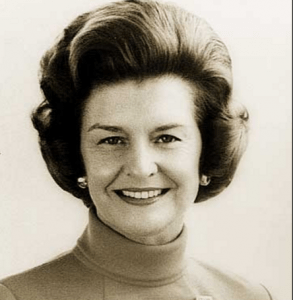Benjamin Franklin declared that “Every natural right not expressly given up, or, from the nature of a compact, necessarily ceded, remains.” In the mid-twentieth century Barry Goldwater echoed his sentiments in his statement that “Politics is the art of achieving the maximum amount of freedom for individuals that is consistent with the maintenance of social order.” Both these are clear statements of an individual libertarian view.
Applied broadly and evenhandedly, This applies to where you live, how you make your living, whether or not you wish to remain pregnant if you accidentally find yourself so, and for many libertarians, prostitution, drug use, and suicide. From a true individual libertarian perspective, in no other way is a government as intrusive as when it presumes to tell us what we may or may not do with our own minds and bodies. Jesse Ventura states it clearly: unless one person is harming another, government has no place telling us what to do in our personal lives.
Some people, however, confuse things badly by mixing that up with a “big business libertarian” (i.e. corporate dominance) view. The two are entirely different. Taken to its logical end, big business libertarian really means “corporate dominance.” If both a person and a corporation can truly do anything they please (and No, Virginia, as anyone who does not have bean for brains can see, a corporation is not a person), the corporation’s enormous wealth and power enables it to crush individual liberties.
The naked reality is that Individual libertarian [and] big business libertarian views are entirely different. Individual libertarians’ say, “keep the state out of our private lives.” Big business libertarians say, “A corporation that may be more powerful than a small nation ought to be free to do as it pleases without any guidelines, oversight or social responsibility.”
Ironically, many who hold “big business libertarian/corporate dominance” views also lobby constantly for government contracts, subsidies, tax incentives, land grants, anti-labor and anti-union laws—even subsidies for herbicide and pesticide farming that poisons farmers and consumers. The corporate dominance outlook holds that Wall Street, the big banks, other great corporations, and “the invisible hand of the market” will look out for ordinary people’s interests and put people to work. A true fairy tale! Yet many in this camp also seek government regulations that will give them a competitive advantage or wedge of entry into some market. That’s a very long way from “free markets.” On the other hand, small mom and pop businesses are alto often hobbled by an excess of rules and regulations and forms to fill out that don’t help anybody anywhere.
The confusion of the individual libertarian and corporate dominance perspectives owes much to Ayn Rand, an unbending elitist whose antidemocratic philosophy rightly lauded the individualism of the perceptive and able few, but forgot that the people as a whole can be educated toward a tolerant individualism and an evolving higher consciousness. Rand’s books have a strong cult following of those who believe themselves superior to others and therefore feel entitled to everything they can get regardless of the effects on anybody else. Interestingly enough, research shows that those who are “superior” in amassing wealth (Rand’s central cadre of supporters) are almost all people who are good at organizing and finance, and include almost no one who is creative in the sciences or arts, and not a single Nobel Prize winner. In other words, in real life many of the would-be creative heroes whom Rand lauds are shut out of the utopian conditions for the few that she advocated.
Many people who want to make laws that impose their own values on others are regular working people who have been lured into an alliance with those who foster the corporate dominance – (“business libertarian”) ideology. They have been taken in by the cover story that “free market economics” will fix all the problems they’re concerned about. Or they may be worried about the alternative story that unless they support the corporate dominance outlook they’ll soon be fired. Many are getting screwed by this unholy alliance.
To be truthful about today’s realities, Ralph Nader has suggested changing the pledge of allegiance to “. . . with Liberty and Justice for Some.”
Forms of freedom include freedom from intimidation by other people or government or businesses as well as freedom to do as you please. Your freedom to is subject to limits that keep you from harming others.
One of the worst abuses of freedom in the U.S. today is widespread imprisonment of people who have done nothing that harms another. This began on its present broad scale during Ronald Reagan’s presidency. It costs taxpayers billions of dollars every year. I cannot imagine that Benjamin Franklin, Thomas Paine, George Washington, Thomas Jefferson, Ethan Allen, or Abraham Lincoln would have done anything other than oppose this practice vehemently. They would surely have argued for freedom from such tyranny.
In a similar vein, The Vatican is still trying to control U.S. state and federal policies to suit its own wishes, and has managed to drag some unsuspecting Evangelicals along with it.
Roman Catholic President John F. Kennedy declared, “I believe in an America where the separation of church and state is absolute – where no Catholic prelate would tell the President (should he be Catholic) how to act and no Protestant minister would tell his parishioners for whom to vote – where no church or church school is granted any public funds or political preference – and where no man is denied public office merely because his religion differs from the President who might appoint him or the people who might elect him. . . . I believe in an America . . . where no public official either requests or accepts instructions on public policy from the Pope, the National Council of Churches, or any other ecclesiastical source — where no religions body seeks to impose its will directly or indirectly upon the general populace or the public acts of its officials – and where religious liberty is so indivisible that an act against one church is treated as an act against all.”
Barry Goldwater, who was called “Mr. Conservative,” held similar views: “Religious factions. . . are trying to force government leaders into following their position 100 percent. . . . I’m frankly sick and tired of the political preachers across this country telling me as a citizen that if I want to be a moral person, I must believe in ‘A,’ ‘B,’ ‘C,’ and ‘D.’ . . . I will fight them every step of the way if they try to dictate their moral convictions to all Americans in the name of ‘conservatism.’ . . . A lot of so-called conservatives think I’ve turned liberal because I believe a woman has a right to an abortion. That’s a decision that’s up to a pregnant woman, not up to the pope or some do-gooders on the religious right.”
More recently Minnesota’s Governor Jesse Ventura said, “I believe in the separation of church and state. . . The religious right wants to tell people how to live . . . I hate what the fundamentalist fanatics are doing to our country, “I have a strong belief that you are in charge of your body, whether male or female. It’s the house you are living in for your entire existence – your temple, as the more religious might say.” The comments by Kennedy, Goldwater, and Ventura express exactly the sentiments of the founding fathers. For example, James Madison declared, “The purpose of separation of church and state is to keep forever from these shores the ceaseless strife that has soaked the soil of Europe with blood for centuries.”
But in 2012 a Republican vice-presidential hopeful, Paul Ryan, sneered at the words of Democrat John F. Kennedy, Republican Barry Goldwater, and Independent Jesse Ventura above, which express exactly the sentiments of the founding fathers. And recently self–righteous true believers who are convinced that the principles espoused by their religious views should be put into laws that control everyone are making headway in state legislatures across the land, while self-styled libertarians roll their eyeballs and look the other way.
What is the opposite of a libertarian view? An authoritarian one. Authoritarians want control. They tend to belittle, harass, intimidate, or jail those who resist their agenda. Freedom is fine for them, but you and I had better shut up and do as we’re told. Authoritarian attitudes and actions are anti-libertarian and anti-democratic. This holds true in the realm of government, business, religion, and other matters.
So next time you hear the word “libertarian,” ask yourself: “Liberty for whom? Or what?”
(This blog is adapted from the 2012 book The Radical Wrong: Lies Our Founding Fathers Never Told Us — Washington, Jefferson, Lincoln and Others Refute Right-Wing Extremists. )



 BARRY GOLDWATER said, “A lot of so-called conservatives think I’ve turned liberal because I believe a woman has a right to an abortion. That’s a decision that’s up to a pregnant woman, not up to the pope or some do-gooders on the religious right.”
BARRY GOLDWATER said, “A lot of so-called conservatives think I’ve turned liberal because I believe a woman has a right to an abortion. That’s a decision that’s up to a pregnant woman, not up to the pope or some do-gooders on the religious right.”



